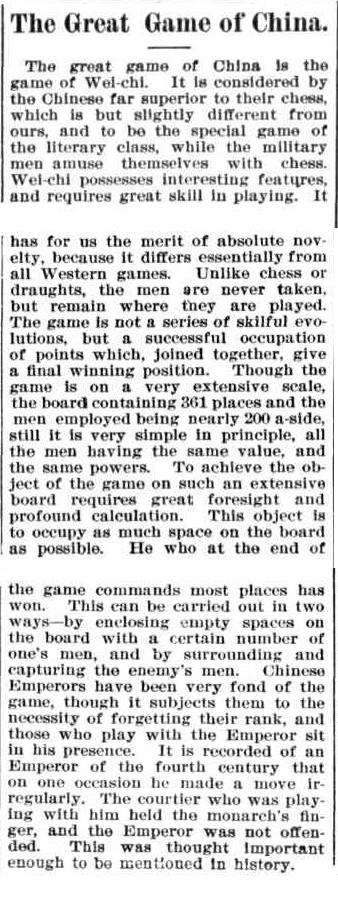The Great Game of China
The great game of China is the game of Wei-chi. It is considered by the Chinese far superior to their chess, which is but slightly different from ours, and to be the special game of the literary class, while the military men amuse themselves with chess. Wei-chi possesses interesting features, and requires great skill in playing. It has for us the merit of absolute novelty, because it differs essentially from all Western games. Unlike chess or draughts, the men are never taken, but remain where they are played. The game is not a series of skilful evolutions, but a successful occupation of points which, joined together, give a final winning position. Though the game is on a very extensive scale, the board containing 361 places and the men employed being nearly 200 a-side, still it is very simple in principle, all the men having the same value, and the same powers. To achieve the object of the game on such an extensive board requires great foresight and profound calculation. This object is to occupy as much space on the board as possible. He who at the end of the game commands most places has won. This can be carried out in two ways-by enclosing empty spaces on the board with a certain number of one's men, and by surrounding and capturing the enemy's men. Chinese Emperors have been very fond of the game, though it subjects them to the necessity of forgetting their rank, and those who play with the Emperor sit in his presence. It is recorded of an Emperor of the fourth century that on one occasion he made a move irregularly. The courtier who was playing with him held the monarch's finger, and the Emperor was not offended. This was thought important enough to be mentioned in history.
